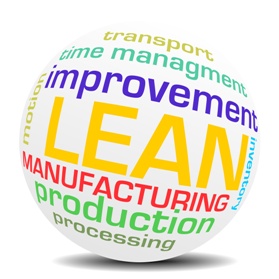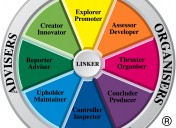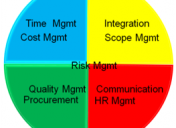Applying lean process improvement to service industries

Many businesses consider Lean process improvement as a viable and effective way to help uncover hidden waste and improve efficiency. Efficiency improvement is important because productivity gains have been cited as the most accessible way to ensure sustainability of business in uncertain economic times.
Lean is Toyota’s famous process-improvement approach and is still one the most cost-effective and reliable means of finding and implementing productivity gains in business. In fact, findings by the University of Melbourne and the Bevington Group have shown that most organisations have hidden waste at levels of up to 36% of all staff effort. In other words, over a third of all business workforce resources are consumed by non-productive activity.
The difficulty arises, however, when this approach is deployed into a complex service system environment.
Lost in translation
Unlike a mechanised production line, service industries typically have highly transactional processes that are heavily reliant on the interpretations and skillsets of the people who work within them.
Consider healthcare as an example. The quality of healthcare outcomes is a complex and highly variable interplay between the knowledge and skills of the clinical and administrative staff, the materials and equipment they use and the way they all work together within and between the silos that exist in most modern organisations.
Lean can certainly offer many tools and approaches to improve and safeguard healthcare processes. However, the inherently variable assessment, diagnosis and treatment of patients can make Lean activities almost impossible to implement and measure. Add to this the fundamental problem that some senior and executive management engage with Lean process improvement in the same way that they would manage financial accounting within the organisation: hire an accountant, get it done.
Lean process improvement is fundamentally a more strategic solution than a process that can be completed as a single project.
As John Seddon says in his book, Freedom from Command & Control, ‘We teach managers that their job is to manage people and budgets’. This is a legacy of management that fundamentally disconnects the people doing the work from the people making decisions about the work. Does that sound in any way sensible? Yet, this is what most organisations are unconsciously doing.
Seddon encourages us to take a major re-alignment in our thinking as well as in our organisational structure in order to successfully implement Lean with a systems perspective.
The challenge for organisations today is to take an ‘outside-in’ perspective to see, from the customer’s view, the waste generated by the organisation’s current design. The next step is to align the management approach around a systems solution, where managers collaborate with staff to improve the work, increase the flow of value and reduce waste.
In doing this, it is imperative to have the right advice and capability development strategy from someone who understands that a car manufacturing production line is very different from fast-paced electronic transactions in a bank or from providing modern patient care.
Contributor – Debbie, Ancora Specialist Lean Trainer
Debbie is an experienced and engaging change management and process improvement professional. She has over 20 years’ experience in leading, training, and facilitating teams and organisations in a range of improvement methodologies including the application of Lean in service industry settings, and particularly in health. She has a depth of experience in a wide range of industries as diverse as banking and finance, heavy aircraft maintenance and charitable organisations.
To learn more about how Lean Process Improvement can help your organisation
Call us on 1300 ANCORA (1300 262 672)


















